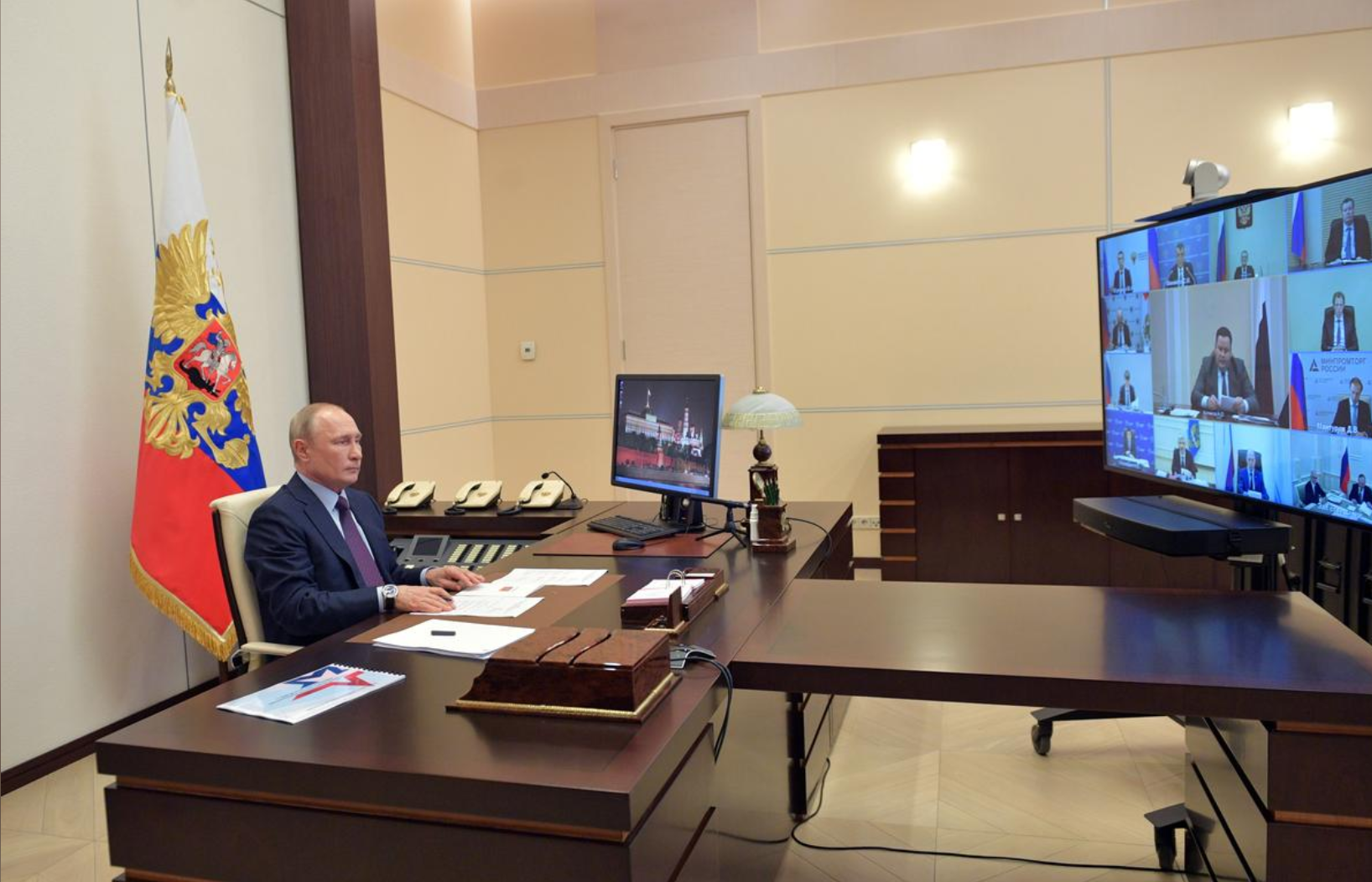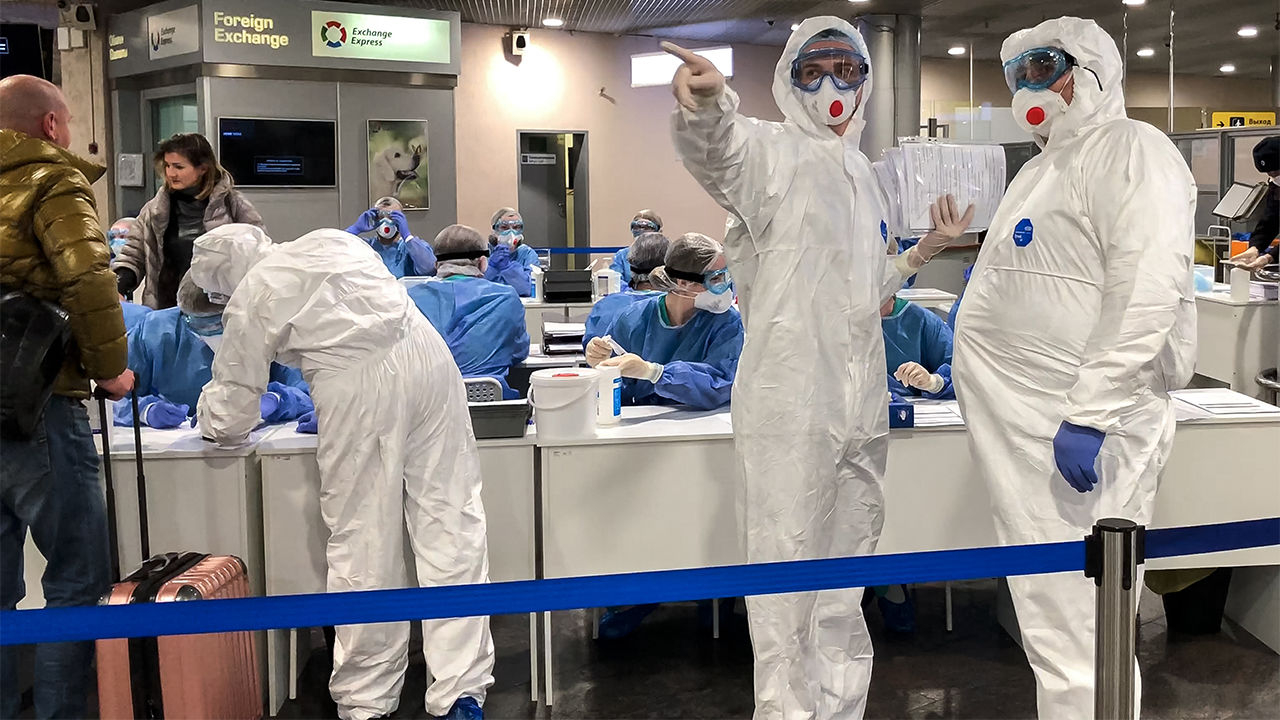Editor's note: This is the 55th article in the COVID-19 Global Roundup series. Here is the previous one.

Russian President Vladimir Putin chairs a meeting on social and economic issues via a video link at the Novo-Ogaryovo state residence outside Moscow, Russia, May 6, 2020. /Reuters
Russian President Vladimir Putin chairs a meeting on social and economic issues via a video link at the Novo-Ogaryovo state residence outside Moscow, Russia, May 6, 2020. /Reuters
Russia announced it will ease its restrictions aimed at curbing the spread of the novel coronavirus in three stages, though the coronavirus cases have been risen for the fourth consecutive day and Wednesday reported more than 10,000 new cases, bringing the total confirmed cases to 165,929, while the death toll climbed to 1,537.
According to Anna Popova, head of the consumer health regulator Rospotrebnadzor, the first step will allow people to go for walks and exercise on the streets and the second stage would see educational establishments and some service-sector businesses return to operation, with recreational facilities including parks and squares then reopening in the third stage.
The ease of restrictions came as the result of a series of catalysts, including petitions from small businesses, the falling oil and gas prices, and the surging number of registered unemployed.
In a televised meeting of the Russian cabinet, ministers told Putin that Russia's economic activity has fallen by 33 percent since the beginning of the coronavirus pandemic.
Small and medium-sized businesses have pleaded for help and warned of mass bankruptcies in petitions to the government, including one with more than 250,000 signatures on March 24.
According to Russia's Economy Minister Maxim Reshetnikov, a total of 735,000 people have registered as unemployed over the last two months. However, economists of Statista, a German online portal for statistics predicted there could be 10 to 15 percent unemployment rate in 2020, leaving five to eight million people without a job in Russia.
Compounding to the economic difficulties, it's plain to see that oil and natural gas prices are collapsing and it's threatening the living standard of Russians since energy exports accounted for 65 percent of total exports of Russia, according to The World Bank's Russia Economic Report made in December 2019.
The government has introduced one trillion rubles (13.5 billion U.S. dollars) of economic stimulus plan for businesses on April 15 to try to shield its economy from the coronavirus shock.The package includes interest free loans and payments of 12,130 rubles (160 U.S. dollars) per employee in April and May. Russian officials say around 2,000 small businesses applied for interest-free loans to pay staff salaries every day, above the government's expectations.
So far, the country has already spent nearly three trillion rubles (40 billion U.S. dollars) on emergency support.
However, according to Alexei Kudrin, head of Russia's Audit Chamber, he told Russia's RBC news site on April 8 that the government needs a package that amounts to seven percent of GDP, four times the current package to save the economy.

Medics are preparing to check passengers arriving from Italy at Moscow's Sheremetyevo International Airport. /AP
Medics are preparing to check passengers arriving from Italy at Moscow's Sheremetyevo International Airport. /AP
Russia responded to the coronavirus really quickly in the beginning. It shut down its 2,600-mile border with China as early as January 30, just few days after the city of Wuhan in China was put into lockdown. And the country says it has been testing en masse since early February, including in airports, focusing on travelers from Iran, China, and South Korea.
However, they forget Italy and other badly affected EU countries. The majority of the coronavirus cases reported in Russia were brought from Italy, according to its health officials.
"Measures to restrict air travel with Europe were introduced too late, when outbreaks had already occurred in Italy and other countries," Sergey Alkhovsky, a virologist who studies emerging and zoonotic viral infections at the Russian Ministry of Health's D.I. Ivanovsky Institute of Virology said in an interview with the Science Journal.
The country confirmed its first-ever coronavirus related death on March 19, and declared a national week off started from March 28 to April 5. The non-working period during which schools and certain businesses have to close has been extended twice and the last extension will expire on May 12.
But by then the small number of cases Russia had early on had begun growing and the economic fallout now is already under way.
President President Vladimir Putin last week said the non-working period has managed to slow down the pace of the novel coronavirus spread in the country, but warned that lifting restrictions after the country passes the peak of the coronavirus epidemic will not happen simultaneously since the risks are still unforeseen.
In view of this, the president has instructed Russian officials to prepare step-by-step plans on lifting the restrictive measures introduced to contain the spread of the novel coronavirus starting May 12. And he said the plans must be ready by May 5.
(With input from agencies)